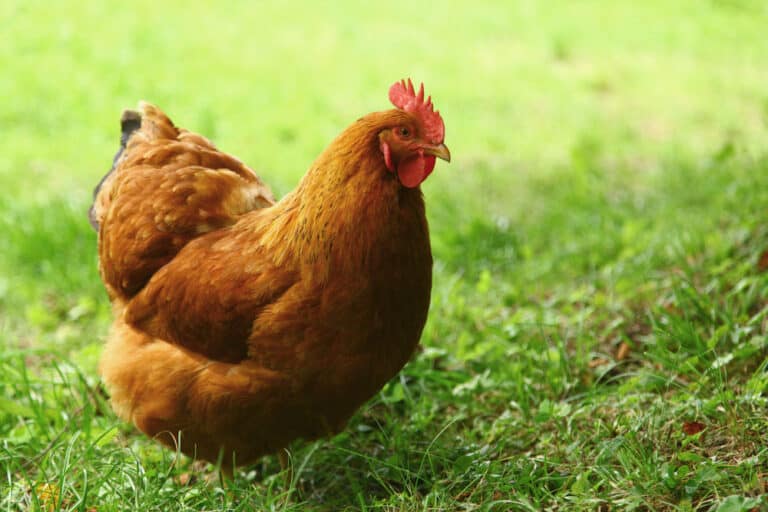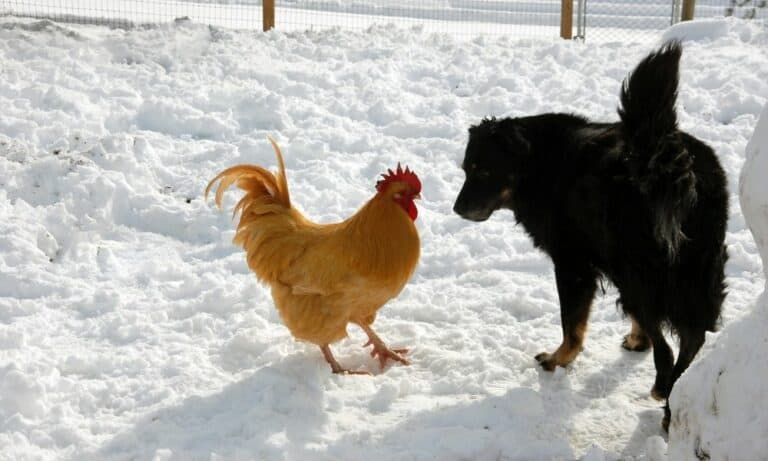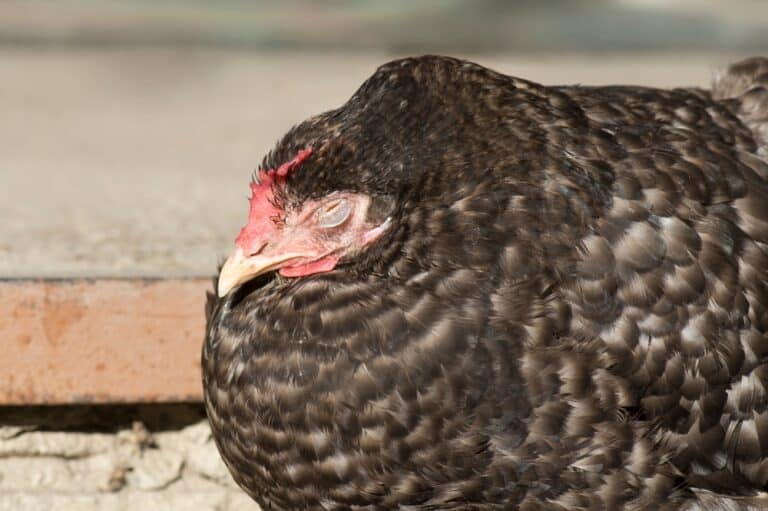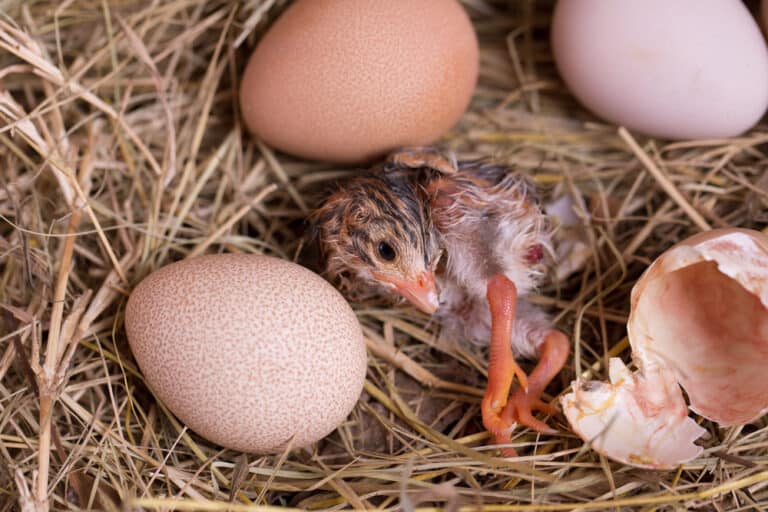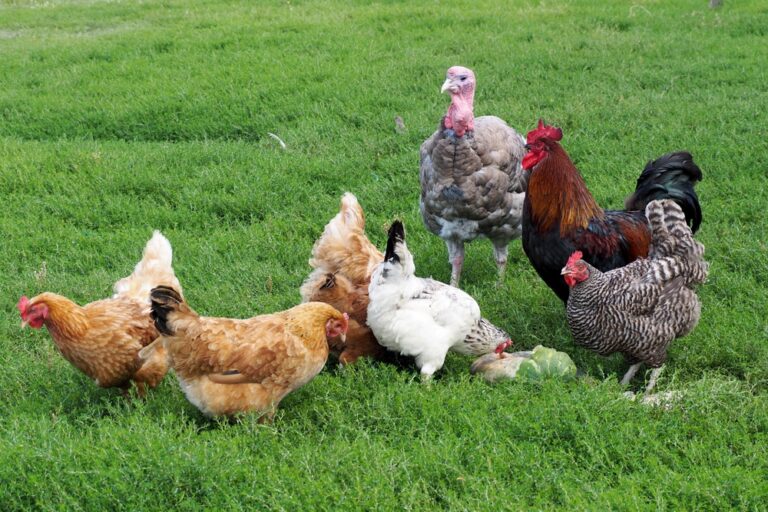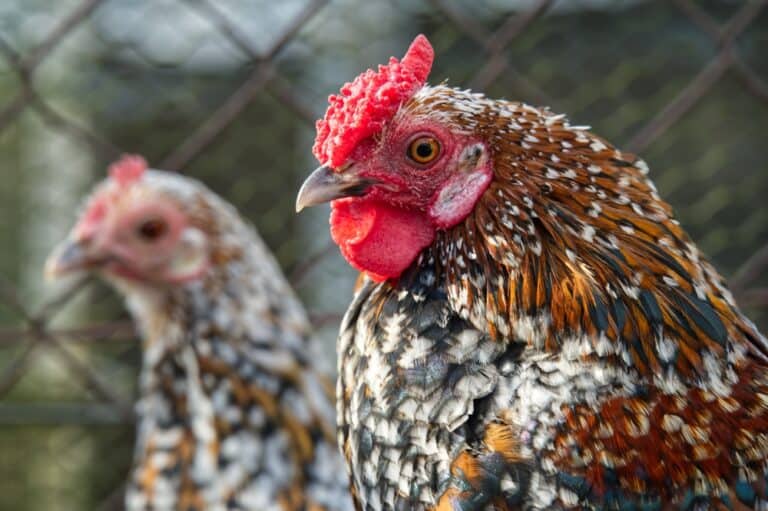Nothing beats the excitement and fulfillment of raising chickens and enjoying farm-fresh eggs and tasty meat. Let’s not forget the companionship these two-legged feathery creatures can offer.
However, amidst this, some uninvited guests can quickly turn your sublime scene into a nightmare. One such guest is the raccoon.
Small, clever, and with a knack for raiding chicken coops, raccoons can leave a trail of destruction behind.
But worry not! You have stumbled on the right page.
In this post, we’ve highlighted several best strategies to outsmart and keep mischievous raccoons away from your flock.
Raccoons Behaviors and Attraction
Like the fox and opossums, raccoons are known for their tendency to get into about anything; chicken coops are no exception.
In fact, these notorious troublemakers sometimes establish their dens under coops. While they might not prey on your bird at first, they will eventually get into the hen house and kill the chickens. This rings true, especially if the raccoon has kits (baby raccoons).
With its sharp teeth and agile paws, a mother raccoon will wreak havoc on your hen house for an easy meal. This could be the tasty chicken eggs, baby chickens, and sometimes adult hens and roosters.
Mother raccoons are also super protective, and they will kill anything that poses a threat to their offspring.
Yes, some people keep raccoons as pets. But that only works if you have no birds around. Raccoons are territorial animals and will protect their homes with force, even if it means killing backyard chickens.
If you’re not raising a raccoon as a pet and looking for an effective way to keep them away, continue reading below.
Effective Ways to Keep Raccoons Away from Your Chicken
1. Secure the Chicken Coop
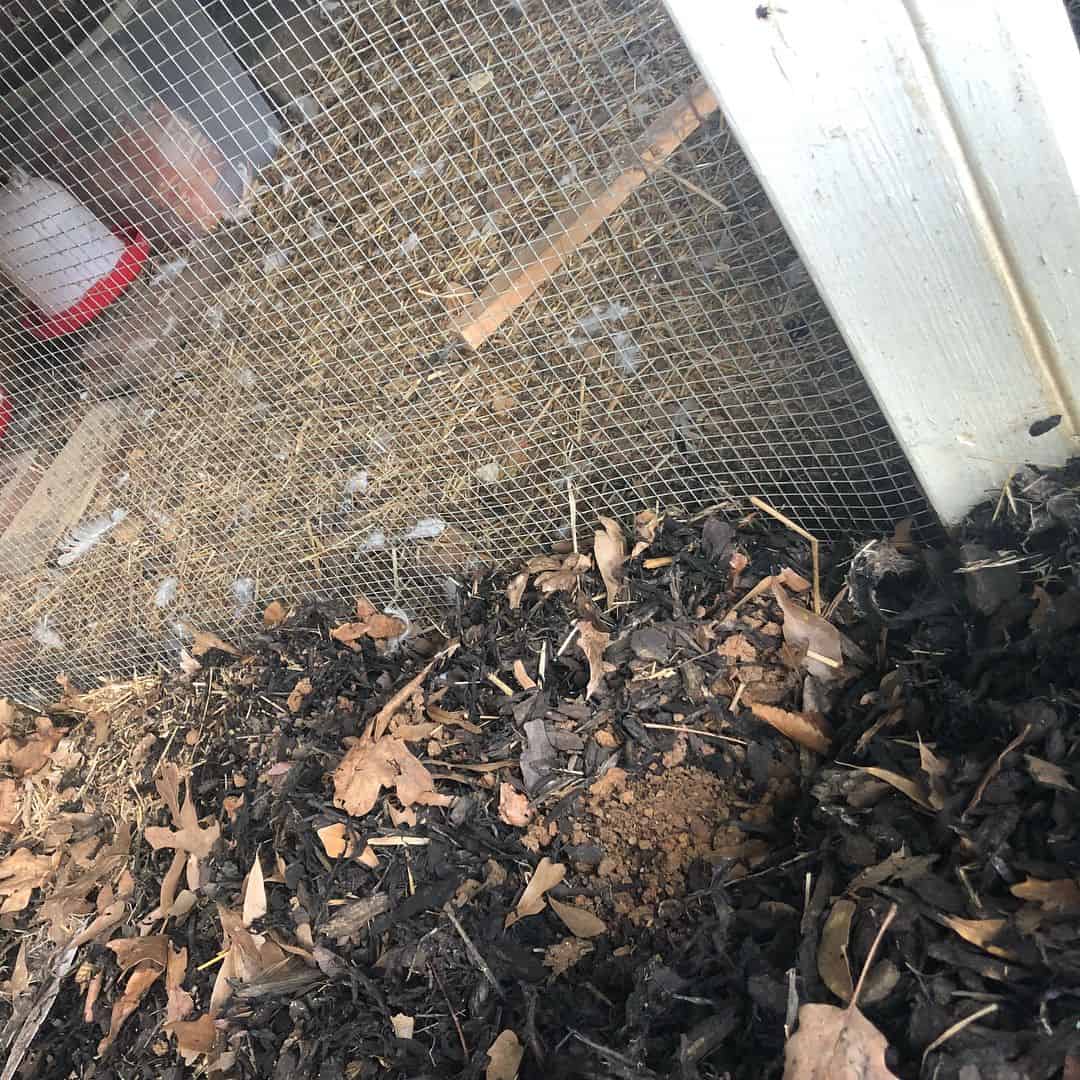
Raccoons can squeeze into the smallest spaces. That’s why it’s common to find them inside trash cans, even if they are locked.
If you want to protect your chickens from these wild animals, start by reinforcing the hens’ house structure. Build a raccoon-proof floor using concrete since these animals cannot dig through the hard surface.
Use wire mesh to patch up and cover gaps (like windows and ventilation), holes, and other openings. Ensure you repair loose boards and seal off likely entry points. Furthermore, use sturdy locks for the chicken coop doors.
That said, below are several tips to help you secure your hen house and deter raccoons.
- Use Hardware Cloth
Raccoons can grab the chicken through the holes of the wire mesh using their agile paws and sharp claws.
The best way to prevent this is to use a hardware cloth. The cloth will also help keep other pests and predators at bay, including rats and foxes.
- Build a Chicken Pen
While people use the terms chicken pen and chicken coop interchangeably, they have different meanings.
A chicken coop refers to the building where your birds nest. On the other hand, a chicken pen is a fenced area around a chicken coop, also known as a “run”.
A chicken pen allows your flock to exercise and explore while staying safe from predators like raccoons. Think of it as a backyard with shelter, food, and a place for birds to roost and lay eggs.
By building a chicken pen, you can protect your chickens while they enjoy the great outdoors. Alternatively, you can buy a ready-made chicken run that meets your needs.
- Predator-Proof Latches
Install predator-proof latches on all the chicken coop’s doors and windows. Raccoons are brilliant animals and they can easily figure out simple latches.
But a complex latch requires multiple steps to open. As a result, these predators might find it difficult to manipulate them. For added security, consider using locks, carabineers, or padlocks.
- Use a predator Apron
A predator apron is a fencing material installed above the ground that runs along the perimeter of the chicken coop and enclosed run.
Once installed, the predator apron prevents raccoons from digging their way into your kitchen coop.
For the predator apron, you can use 16-gauge steel welded wire fencing. Dig a 12-inch trench around the perimeter of the hen house and bury the predator apron. You can also extend the apron to the chicken pen.
Hammer the wire fencing to the chicken coop using galvanized poultry staples since they are strong and slightly rust-resistant.
Concentrate more on the corners where you attach the seams of the fencing material because raccoons love to start digging in the corners.
To keep the seam secure, you can use hog rings and a hog ring plier to fasten the fencing material where it overlaps.
- Regular Maintenance
Inspect the coop and its surroundings regularly to identify any potential vulnerability. Repair or reinforce weak points as soon as possible.
Furthermore, keep the surrounding vegetation trimmed and clear to reduce hiding spots for predators. Moreover, maintain a clean hen house to ensure good hygiene for your birds and keep away raccoons.
Clean the coop regularly and remove spilled food, dirty litter, and chicken droppings. This way, you can eliminate messes and odors, reducing the chances of attracting predators.
- Automatic Doors
To take your chicken security a notch higher, install automatic chicken coop doors. These doors come in handy for individuals who are rarely at home.
Automatic doors will close and lock your birds securely in their house at dusk and open at dawn. They also eliminate the possibility of forgetting to secure the coop at night when predators are most active.
2. Use Natural Ways to Keep the Raccoon Away
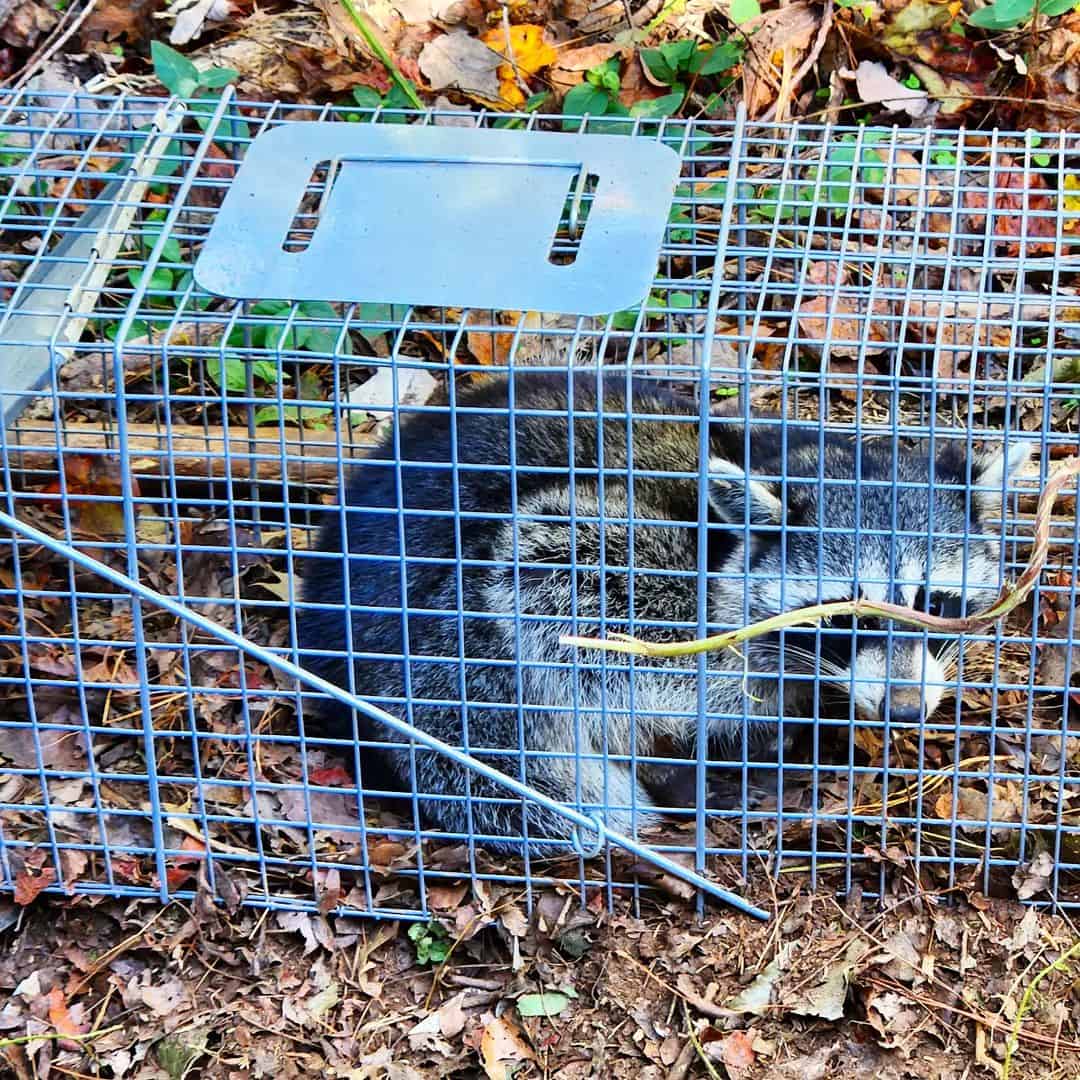
There are various natural methods you can use that are effective in chasing the raccoons away, including:
- Starve the Raccoons
You can starve the raccoons by stopping them from invading garbage bins. Use bin straps because the garbage bin’s lid stays in place when tipped over.
Raccoons eat leftovers, including pet food and chicken feed. Therefore, store the chicken and pet food in a galvanized steel container with a locking lid.
Another thing, dump the water left in the feeder when the chickens go to roost. Raccoons use chicken water to clean their food.
Chicken owners should also make it a habit to collect all the chicken eggs in and around the coop before nighttime. And don’t forget to pick all ripe and fallen fruits from fruit trees on your property.
- Schedule Supervision
Conduct an early morning check to ensure the area is raccoon-free before releasing your chickens. If you notice an unusual calmness, be cautious, as a raccoon could be waiting for your chicken.
- Keep Chicken Coop in Open Space
Raccoons like to hide when invading a chicken coop because they often feel nervous about crossing the opening space.
So, ensure the area around your chicken coop is free of bushes, trees, shrubs, or anything they can hide in.
- Get A Guard Dog
Some dog breeds, like the German Shepherd, can serve as pets and guards for your flock against raccoons day and night.
A good guard dog will bark at predators, forcing them to abort the attack on the chicken. Some will even give the predators a good chase, preventing them from coming back.
When choosing a guard dog, opt for one that has grown up around chickens. You also want to incorporate minimal supervision when you use guard dogs to minimize potential stress or injury to chickens.
- Use Traps
You can install traps around your compounds to capture the raccoons. However, traps have numerous restrictions. Begin by researching the wildlife laws governing your area. If you cannot trap raccoons, contact the wildlife rescue personnel to help you.
If local laws allow, trick the raccoon by throwing a marshmallow behind the trap and carefully applying peanut butter under and all over the trap plate.
Schedule a frequent visit to the trap area to avoid endangering the life of the trapped animal under the scorching sun.
3. Scare the Raccoons Away
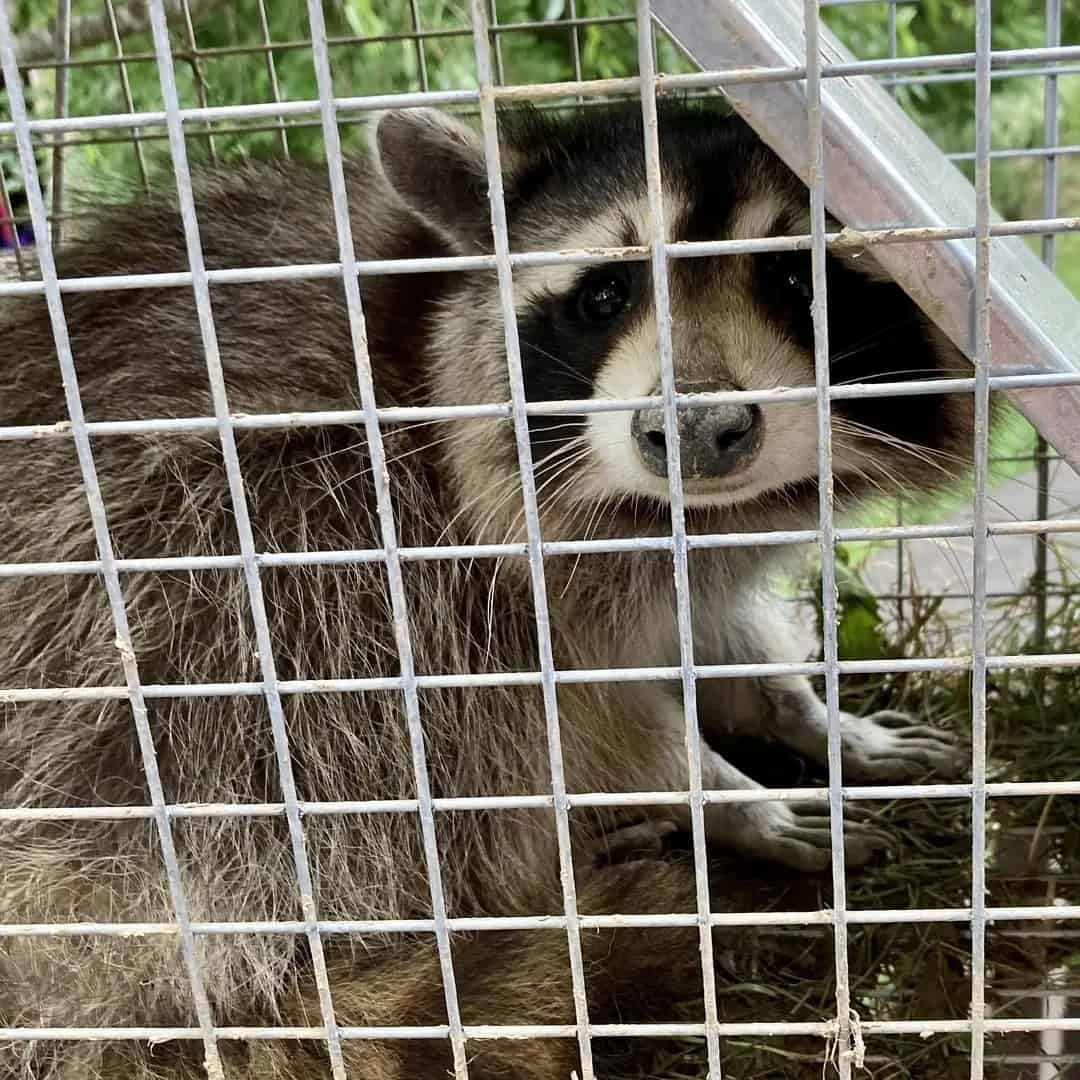
- Use Motion Activated Lights
Another effective method to deter raccoons is to install motion-activated lights. Raccoons are nocturnal creatures, and they usually avoid well-lit areas.
Installing motion-activated lights around your yard can make raccoons startled and uncomfortable. The sudden burst of light can disrupt their behavior and make them reconsider entering your property further.
- Motion Activated Sprinklers
Motion-activated sprinklers are an effective method of keeping predators at bay. These sprinklers detect animals using motion sensors and then spray a burst of water on them.
It’s no secret! Raccoons hate water. Spraying large amounts of water in your backyard can help discourage raccoon activities, like hunting chickens.
- Install an Electric fence
Installing an electric fence around your farm is perhaps the best long-term solution to your raccoon menace.
When raccoons touch the electric fence, they receive a harmless but startling electric shock. As a result, they will refrain from coming close to your chicken coop.
When installing the electric fence, follow the right procedure to avoid electrocuting chickens. Also, check local laws and regulations on installing electric fences.
- Use Predators Guard Lights and Repellants
Predator guard lights, like Nite Guard solar lights are effective at chasing raccoons away. These lights flash red, mimicking the predator’s eye shine, and recreate the feeling of being watched. As a result, it creates a sense of danger, forcing the predators to flee the area.
Some guard lights produce sounds associated with predators, creating an intimidating environment for raccoons. Others emit unpleasant smells that can deter raccoons from coming close to the chicken coop.
Whether you buy a predator guard light or repellent, ensure you install them in elevated positions to maximize their effectiveness. You could place these helpful devices on fences, trees, or near your chicken coop.
4. Use Smells Raccoons Hate
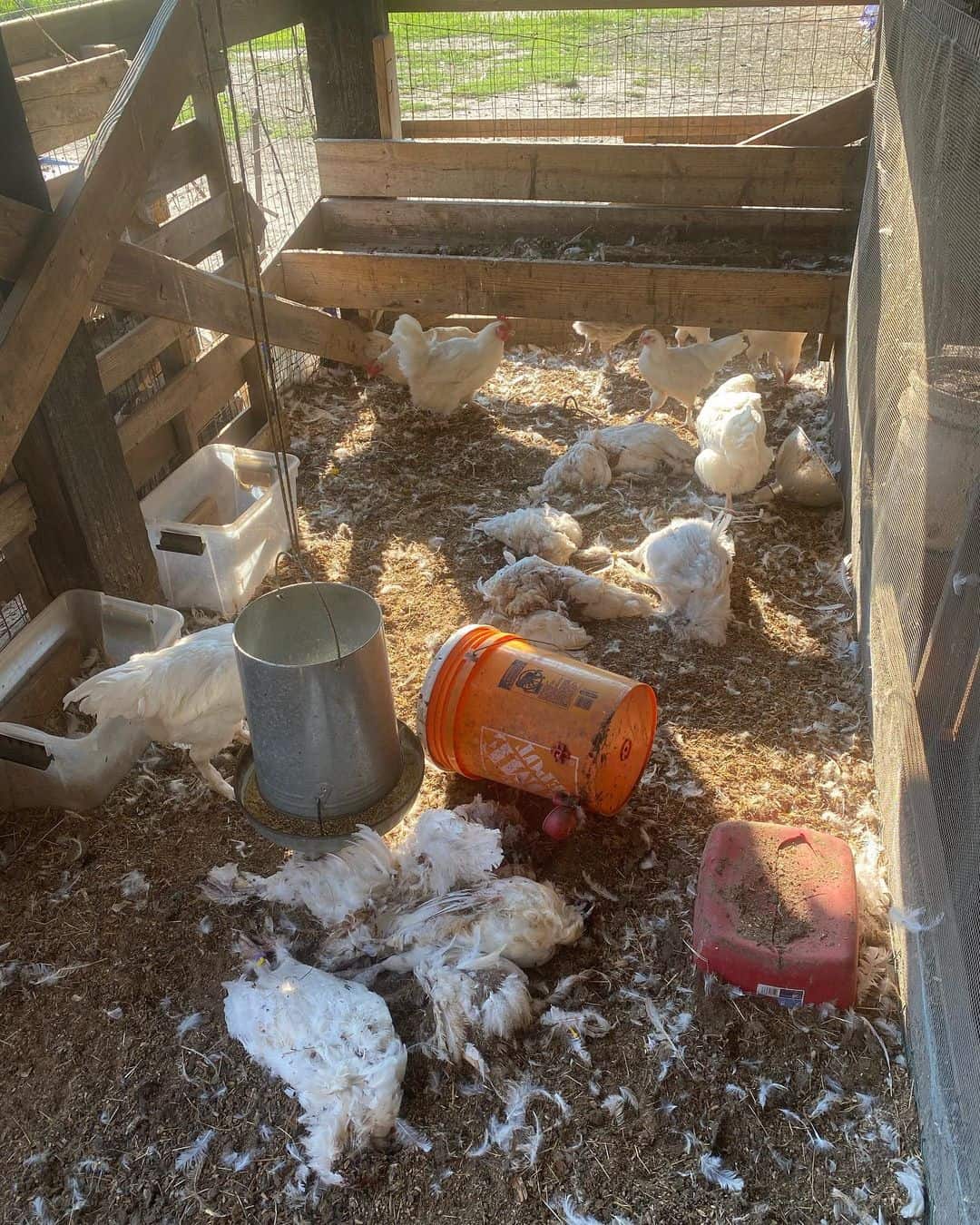
Raccoons have an incredible sense of smell that allows them to locate chickens from afar. Luckily, you can use their unique sense of smell against them.
How, you might ask? Well, use scents that raccoons detest to repel them from your hen house.
Here, we’ve highlighted a few ways to use the raccoons’ keen sense of smell as an advantage.
- Use Specific Plant Smell
Some plants like cayenne pepper, garlic, and onion produce smells that raccoons hate. To keep these animals away, sprinkle some cayenne pepper or garlic powder across your yard.
These potent smells from the powder will create an invisible wall that raccoons find unpleasant. As such, they will think twice before accessing the chicken area.
- Homemade Raccoon Repellant
You can make homemade raccoon repellent by boiling a bucket of water and adding cayenne pepper, onions, and 2 to 3 jalapenos. Cook them for at least 20 minutes at a low temperature, then spray your chicken coop’s perimeter.
You can increase the concentration of the content to make it raccoon-proof.
- Use predators’ Urine
Another effective way to repeal raccoons is using the scent of predators, such as big cats, dogs, and coyotes. Spray the urine from these predators around your yard and chicken coop.
But remember, this method has a drawback, such that it might deter raccoons but make your chickens uncomfortable.
- Use Ammonia or Bleach
Raccoons also dislike the strong and pungent scent of ammonia. Because of this, you can use it to create a powerful raccoon repellent.
Simply soak cotton balls or clothing rags in ammonia and place them around entry points and the chicken’s coop perimeter.
The scent of ammonia will irritate and discourage raccoons from approaching your chickens’ living area.
Conclusion
From stealing eggs to killing chickens, raccoons can be a nuisance for poultry owners.
They are cunning and opportunistic and can wreak havoc on your chicken coop and even decimate your entire flock. If that’s not enough, raccoons carry and spread diseases like rabies, leptospirosis, and others.
Fortunately, there are several measures you can take to protect your beloved flock from the antics of raccoons. For example, you can secure your chicken coop, employ natural deterrents, and maintain a clean environment.
With these tips and strategies in mind, you can establish a safe home for birds while keeping raccoons away.
So, take advantage of this information and enjoy the rewards of a harmonious chicken-rearing experience.

